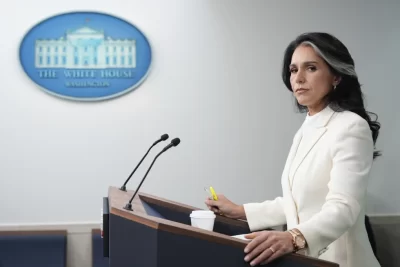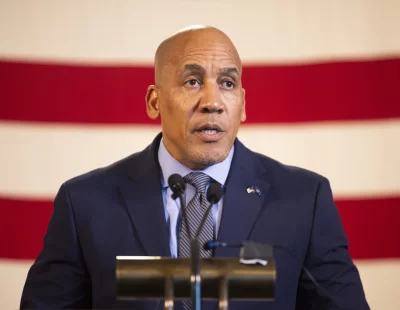
A Missouri judge tossed Republican-written ballot summary language Monday that described several proposed constitutional amendments as allowing “dangerous and unregulated abortions until live birth.”
Cole County Circuit Judge Jon Beetem rewrote the ballot summary to describe the language as establishing the “right to make decisions about reproductive health care, including abortion and contraception,” as well as undoing the state’s almost total ban on abortions.
In Missouri, summaries are provided to voters on ballots to help quickly explain sometimes lengthy and complicated proposals. The office of Republican Secretary of State Jay Ashcroft, which wrote the summaries, plans to appeal.
“We will not stand idly by while the courts hide the effects of this amendment and mislead the people as to what they may very well be voting on next year,” spokesperson JoDonn Chaney said. Ashcroft is running for governor in 2024.
Missouri is among several states, including Ohio, where abortion opponents are fighting efforts to ensure or restore access to the procedure following the fall of Roe v. Wade last year.
Ashcroft’s description asks voters whether they want to “allow for dangerous, unregulated, and unrestricted abortions, from conception to live birth, without requiring a medical license or potentially being subject to medical malpractice.”
Abortion-rights proponents sued, saying Ashcroft’s summaries were misleading. Beetem agreed in his ruling Monday.
“The Court saw Ashcroft’s proposed summary statements for what they were — the language of a biased politician seeking the support of special interest groups,” Anthony Rothert, director of integrated advocacy at the American Civil Liberties Union of Missouri, said in a statement. “The new summaries go a long way toward fairly describing the right to make reproductive health care decisions without government interference.”
Yamelsie Rodríguez, president and CEO of Planned Parenthood of the St. Louis Region and Southwest Missouri, said in a statement that Missouri officials “have held hostage the right to reproductive freedom” for decades.
Beetem also ruled Monday against abortion opponents who argued that the state auditor’s cost estimates for the measures were misleadingly low because they did not account for potential losses of all Medicaid funding and property and sales tax revenue as a result of lower birth rates.
Abortion opponents did not provide any “facts or credible legal assessment” to support claims that the federal government will take back all of Missouri’s Medicaid funding if abortion is once again legalized, and the argument to include potential loss in future taxes due to lower birth rates includes “so many assumptions as to damage its credibility,” Beetem ruled.
A measure to ensure abortion access is on the November ballot in Ohio after withstanding legal challenges from opponents. That state’s voters in August rejected a measure that would have required at least 60% of the vote to amend the state constitution, an approach supported by abortion opponents that would have made it harder to adopt the November ballot question.
Ballot measures on abortion could also be put before voters in 2024 in states including Arizona, Maryland, New York and South Dakota. But in conservative Oklahoma, an initiative petition to legalize abortion was withdrawn soon after it started last year.
Conservatives’ challenges to the ballot questions have been so intense partly because of the way the votes have been going. After the ruling last year, the issue appeared on the ballot in six states. In all of them, including generally conservative Kansas and Kentucky, the abortion rights side prevailed.




